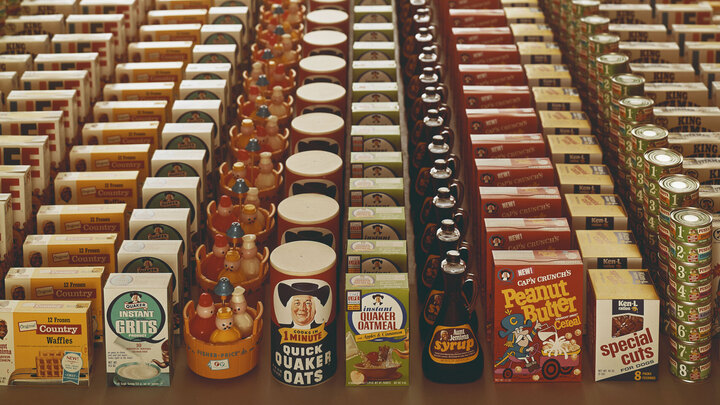Transcript: Scott Gottlieb discusses coronavirus on "Face the Nation," April 18, 2021
The following is a transcript of an interview with former FDA Commissioner Scott Gottlieb that aired April 18, 2021, on "Face the Nation."
MARGARET BRENNAN: We turn now to former FDA commissioner Dr. Scott Gottlieb. He also sits on the board of Pfizer and joins us from Westport, Connecticut. Good morning to you, Doctor.
DOCTOR SCOTT GOTTLIEB: Good morning.
MARGARET BRENNAN: Dr. Fauci said we would know no later than Friday whether this pause on J&J would be lifted. You may not want to answer this question, but if you were still FDA commissioner, would you have gone ahead with this pause?
DR. GOTTLIEB: Well, look, I think this is a decision for FDA to make. Right now it's before the CDC's advisory committee, which I think creates some of the challenges around the process that they've outlined for how it's going to be decided that this gets resumed, the use of this vaccine gets resumed. I think it was a reasonable step to pause use of the vaccine while they investigate these cases. But I do believe this vaccine is going to continue to play an important role and we need to find a pathway to bring this back to the market with perhaps additional warnings, perhaps additional information on who's most indicated for this vaccine, given the fact that these risks do seem to be related to the vaccine based on what we know right now.
MARGARET BRENNAN: When you say restrictions, you mean certain age groups or certain genders?
DR. GOTTLIEB: Yeah, I think you could see a situation where there's an age restriction on it, because a lot of the people who had this side effect associated with the Johnson & Johnson vaccine and also the side effects associated with the AstraZeneca vaccine, which also seemed to be a similar mechanism, they were younger individuals. And so they were at less risk from covid disease. And they seem to be at more risk potentially from this side effect. Now, we don't know a lot, so it's hard to draw firm conclusions. But based on what we know, that's the pattern that's emerging. So you might see a situation where the vaccine does get reserved for use in older individuals who are both potentially at lower risk of this side-effect and also at higher risk of a bad outcome from COVID. That's one possibility in terms of how the FDA would bring this back. The other possibility is they just bring it back with additional warnings and advice to doctors and patients on what to be alert for so that if these cases do emerge, you can get patients into treatment more immediately and hopefully head off a bad outcome.
MARGARET BRENNAN: So starting this coming week, the vaccine is supposed to be available to all adults. When you were last with us, you said we were about to see more supply of vaccine than demand. Does that equation change now that 5% of the vaccine is off the market? Or does any part of this J&J complication change your forecast?
DR. GOTTLIEB: I don't think the equation changes that much. Maybe you get pushed out a week, a week and a half. I think that there's still a lot of supply coming into the market. And we're going to have a situation where the vaccines are going to be readily available. What does change, however, is that the J&J vaccine, as you know, was a one-shot vaccine. It was also able to be stored in- in easier environments. You were able to keep it at room temperature for extended periods of time in normal refrigeration. So it was an easier vaccine to deliver in austere settings. So to the extent that we're having trouble reaching certain communities with vaccination because of the complexity of delivering the current vaccines, the J&J vaccine was a beneficial alternative. So I think the challenge now is going to be that we have to set up better logistics and try to reach communities that we know are hard to reach, where the J&J vaccine was making it easier and now we have to use the mRNA in those settings. But I do believe that J&J vaccine will be back on the market in a reasonable period of time, hopefully this week, and hopefully it will be, you know, able to be used in those populations given what we know about its safety profile.
MARGARET BRENNAN: You said on this program back in February that you expected booster shots to be needed from, you know, Moderna and from Pfizer. Both companies confirmed that this week. So what else do you know about what they're developing? Does this need to be a new kind of vaccine or is it the same version of the same old shot, just a third dose?
DR. GOTTLIEB: Yeah, both are being tested right now in large trials. So we're going to have some data on that pretty soon. If you look at the Danish landmark study where they looked at people who were previously infected with COVID, how long their immunity lasted, once you got out six- six to seven, eight months in people who are over the age of 65, their immunity declined to about 47%. Now, that was from natural infection. We know the vaccines or we believe the vaccines provide more robust immunity than natural infection. But you do see a decline in the immune protection offered by prior infection in older individuals, and you expect to see some degradation with the vaccines as well. So I do believe we're going to be boosting. Now the question of whether or not we use a vaccine that is specific to 1.351, which is in development by both Moderna and Pfizer, or you just use a third dose of the existing vaccine that needs to be worked out. But we need to be careful about is that we don't use a variant vaccine that's specific to 1.351 that provides some better protection against 1.351, but you lose protection against everything else. And that is a possibility. And we're going to have a lot of data around the current vaccines and how- how they protect against the current variants. All we'll have really about the 1.351 variant is how it protects against 1.351. We won't have as much data. So I think this is going to be a challenging decision. I lost sound.
MARGARET BRENNAN: 1.351 being the- being the variant, also known as the South African variant. We just lost audio there. So I'm going to take a break here.
DR. GOTTLIEB: I'm back.
MARGARET BRENNAN: FACE THE NATION we'll be right back in one minute with- I hear him and hopefully all of you can, too. So, Dr. Gottlieb, if you can still hear me--
DR. GOTTLIEB: I am.
MARGARET BRENNAN: I was clarifying what you were talking about with 1.351. Another question about a variant P1, which we are seeing that Brazilian version spread in Canada, actually quite close to the US border here. How concerned should Americans be?
DR. GOTTLIEB: Well, look, I think we need to be concerned about P1, I think we need to be concerned about the variant that's spreading in India as well, which has two mutations in it, the mutation 484K mutation that's found in P1, and also the mutation that's found in that Los Angeles variant. So these- these variants are concerning. Right now the prevalence of them isn't high enough in the United States that I think they're going to take off this summer. So I don't think they're a near-term risk. I think they're a risk as we head into the fall and the winter that one of these new variants could become the predominant strain. Now, that said, B.1.1.7 right now is the most prevalent strain. And there's some people who believe that B.1.1.7 is going to partially crowd out those other variants. And so it might be harder for those--
MARGARET BRENNAN: Mm-hm.
DR. GOTTLIEB: --variants to spread here in the US.
MARGARET BRENNAN: All right, Dr. Gottlieb, it's always great talking to you.
DR. GOTTLIEB: Thanks a lot.
MARGARET BRENNAN: Thanks for your time today. We'll be back in a minute with French President Emmanuel Macron.



